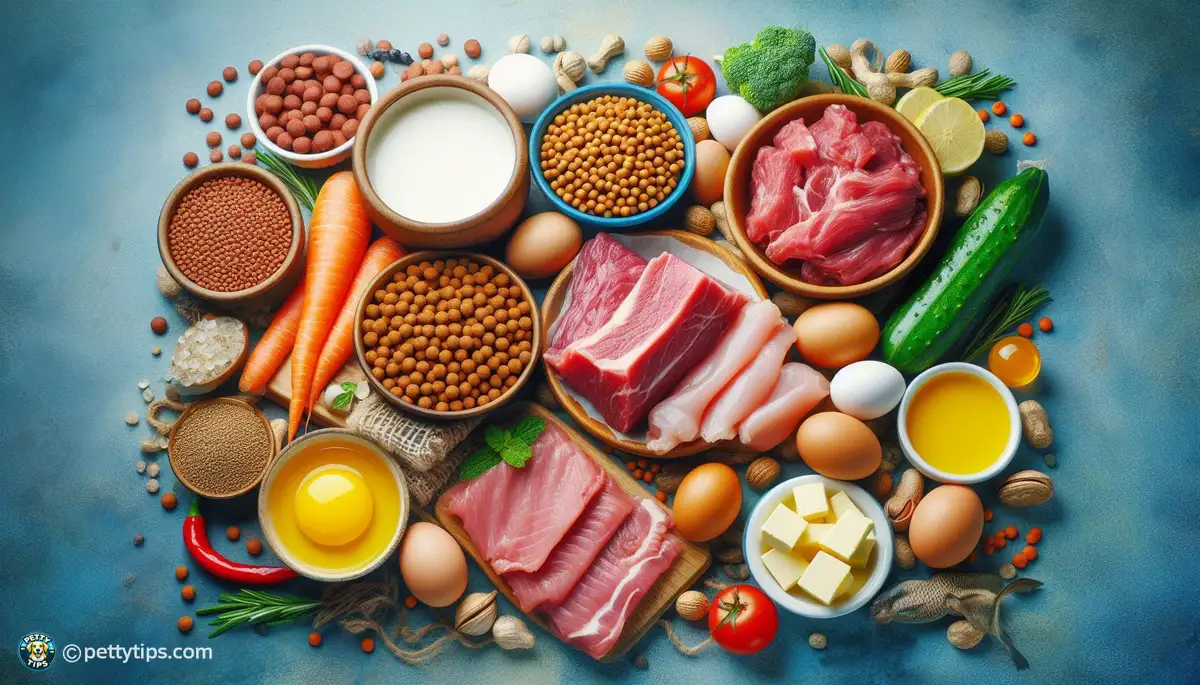
The Science Behind Organic Pet Nutrition
Leon Jenks - Oct 28, 2024 - 5 min read


Proteins are the building blocks of life, and this holds true for our furry companions as well. In a pet's diet, protein plays a crucial role in supporting various bodily functions, from muscle development to immune system health. It's essential to understand the significance of protein and how it contributes to your pet's overall well-being.
Different pets have different protein requirements based on factors such as age, size, and activity level. Puppies and kittens, for example, require more protein than adult dogs and cats to support their rapid growth and development. Similarly, working dogs or highly active pets may need higher protein levels to fuel their energy needs. Understanding your pet's specific requirements is key to providing them with a balanced diet.
Commercial pet foods typically contain protein from animal sources such as beef, chicken, and fish. These proteins are often derived from meat by-products and meal. While these sources can provide the necessary nutrients, some pet owners prefer to explore alternative protein sources for homemade diets.
Homemade pet diets offer greater control over the ingredients and quality of food your pet consumes. By preparing meals at home, you can ensure that your pet receives fresh, wholesome ingredients without artificial additives or preservatives. Additionally, homemade diets can be tailored to meet your pet's specific dietary needs, making them a popular choice for pet owners seeking a more personalized approach to nutrition.
Contrary to popular belief, not all protein sources for pets need to come from animal products. plant-based proteins, such as lentils, chickpeas, and quinoa, can provide a nutritious alternative for pets with dietary restrictions or allergies. These plant-based proteins are often rich in essential amino acids and can be easily incorporated into homemade pet diets.
Eggs are a versatile and nutritious protein source that can benefit pets of all ages. Rich in high-quality protein, vitamins, and minerals, eggs offer numerous health benefits for pets. Whether fed raw, cooked, or as part of a recipe, eggs can be a valuable addition to your pet's diet. However, it's essential to feed eggs in moderation and ensure they are fully cooked to avoid the risk of salmonella contamination.
dairy products such as yogurt and cheese can also serve as protein sources for pets. However, it's important to note that not all pets can tolerate dairy, especially those with lactose intolerance. If your pet enjoys dairy products, opt for plain, unsweetened varieties without added flavors or sugars. Additionally, monitor your pet for any signs of digestive upset and consult with your veterinarian if necessary.
Novel protein sources, such as venison, rabbit, or duck, can offer unique flavors and nutrients for your pet's diet. These alternative protein sources are often less commonly used in commercial pet foods but can be beneficial for pets with food sensitivities or allergies. When introducing novel proteins into your pet's diet, start gradually and monitor for any adverse reactions.
Before making any significant changes to your pet's diet, it's crucial to consult with a veterinarian. A professional can assess your pet's specific nutritional needs and provide personalized recommendations based on factors such as age, breed, and health status. Working closely with a veterinarian ensures that your pet receives a balanced diet that meets their unique requirements.
When preparing homemade pet diets, it's essential to strike a balance between protein, carbohydrates, fats, vitamins, and minerals. Aim to include a variety of protein sources, as well as fruits and vegetables, to provide a well-rounded diet for your pet. Consider working with a veterinary nutritionist to formulate recipes that meet your pet's nutritional needs while avoiding any deficiencies or excesses.
As you transition to a homemade diet or incorporate new protein sources, closely monitor your pet's health and behavior. Look for signs of digestive upset, allergies, or nutrient deficiencies, such as changes in stool quality, coat condition, or energy levels. If you notice any concerning symptoms, consult with your veterinarian promptly to address any issues and adjust your pet's diet as needed.
When selecting protein sources for your pet's diet, prioritize quality and freshness. Choose lean cuts of meat, fresh produce, and reputable brands when purchasing ingredients for homemade meals. Avoid processed foods, artificial additives, and ingredients that may be harmful to your pet's health. Investing in high-quality ingredients ensures that your pet receives the best nutrition possible from their homemade diet.
Exploring protein sources for homemade pet diets opens up a world of possibilities for pet owners seeking to provide their furry friends with nutritious and wholesome meals. Whether you're incorporating plant-based proteins, eggs, dairy, or novel protein options, the key is to prioritize balance, quality, and your pet's individual needs. By consulting with a veterinarian, monitoring your pet's health, and experimenting with different recipes, you can create homemade meals that nourish your pet from the inside out. Remember, a well-balanced diet is the foundation of a happy and healthy life for your beloved companion.